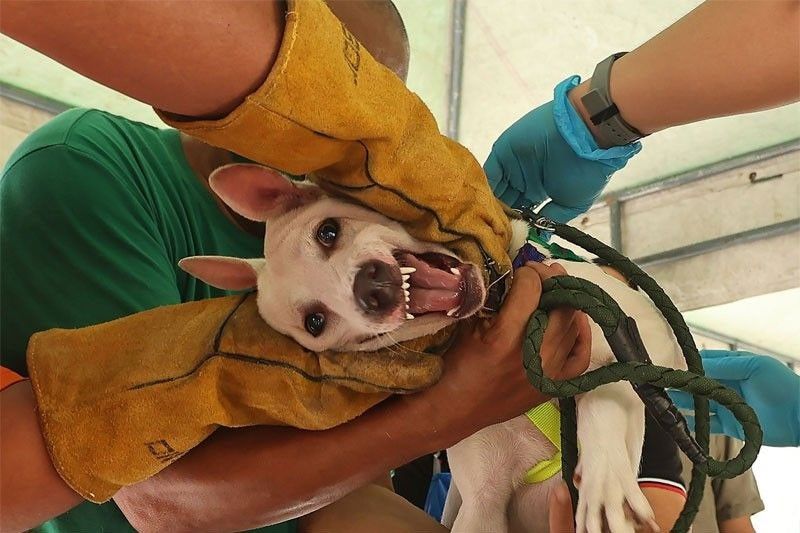Expert: 59,000 people die yearly because of rabies

KUCHING — At least 59,000 people die yearly because of rabies, industry experts said as they gathered in this Malaysian city to achieve the global strategic goal to end dog-mediated human deaths by 2030.
During the Federation of Asian Veterinary Association (FAVA) Congress 2023 here, Global Alliance for Rabies Control Director of Programs Dr. Terence Scott said that rabies remains a neglected disease amid the limited vaccination coverage worldwide.
“In terms of global estimates for rabies, at least 59,000 die every year because of the disease. That’s about one person every nine minutes,” Scott noted.
Scott added that at least 101 countries also did not report deaths caused by rabies.
At the same time, Scott warned against indiscriminate killing of animals in the efforts to address rabies.
“There is scientific evidence that indiscriminate killing of dog is not effective in eliminating rabies, In fact, it can worsen the issue because you may be culling animals that have been vaccinated and therefore you are reducing your herd immunity in that population by culling that animals and allowing the vacuum,” Scott added.
For her part, Dr. Jerlyn Sponseller, an expert from Boehringer Ingelheim said that the global goal of eliminating rabies in humans by 2030 should start by educating children on the threat of rabies.
“We know that close to half of all human deaths occur in children, probably many of these are underreported and it should not be a surprise to anyone that children are proportionately affected by rabies because children like to play with dogs,” Sponseller said.
Sponseller added that there was evidence that children do not tell an adult when they are bitten by a dog or scratched by a cat.
“We should make sure children understand that it is very important to wash the wound for 15 minutes with soap and water and make sure that adults can seek medical attention for the child,” Sponseller added. She said the global initiative to stop rabies has started in certain countries around the world, particularly in Asia and Africa.
“Most recently, we began to work in a non-profit organization in South America. The program for the global level has only been ongoing for the past 12 months,” she added.
For her part, University Putra Malaysia Faculty of Veterinary Medicine senior lecturer Dr. Farina Mustaffa Kamal said that Asia topped human deaths from rabies.
“About 60 percent of rabies human deaths come from Asia, compared to Africa, which is about 30 percent. In Asia alone, the annual cost of post-exposure prophylaxis is about $1.5 billion. Southeast Asian countries like Thailand, Indonesia, Philippines, they are all endemic of rabies. Malaysia used to be rabies-free until sporadic cases in 2015 and we are controlling rabies in Sarawak, the first case in Sarawak was in 2017,” Sponseller said.
Kamal attributed the high incidence of rabies in Southeast Asia due to high number of unvaccinated stray and pet dogs, the unavailability of rabies vaccine in rural regions, misinformation on the significance of seeking treatment after dog bites and dog meat trade. Scott agreed with Kamal on the proliferation of the dog meat trade. “Dog meat trade (still) occurs in many countries, in Southeast Asia, also in Africa, There are still people who eat dog meat. It is very easy to bring in rabies into your area because of unregulated movement of animals,” Scott noted.
Kamal added that the Philippines was able to reduce cases of rabies up to 80 percent after it received huge funding from the Bill and Melinda Gates Foundation.
The global strategic goal to end human rabies deaths by 2030 focuses on the Philippines, Indonesia, Malaysia, Thailand and Vietnam.
“Rabies is completely preventable with holistic programs that focus on dog vaccination, education and surveillance,” Boehringer Ingelheim Malaysia, Singapore, Indonesia Head of Animal Health Dr. Kam Kok Yen, for his part, said.
He underscored the need to pursue a corroborative approach of the government, private sector, veterinarians, pet owners and the community to drive progress towards a rabies-free Southeast Asia. Experts from Southeast Asia, including the Philippines, attended the FAVA Congress 2023 as it remains a rabies hotspot, with millions of people at risk of rabies exposure.
- Latest
- Trending





























